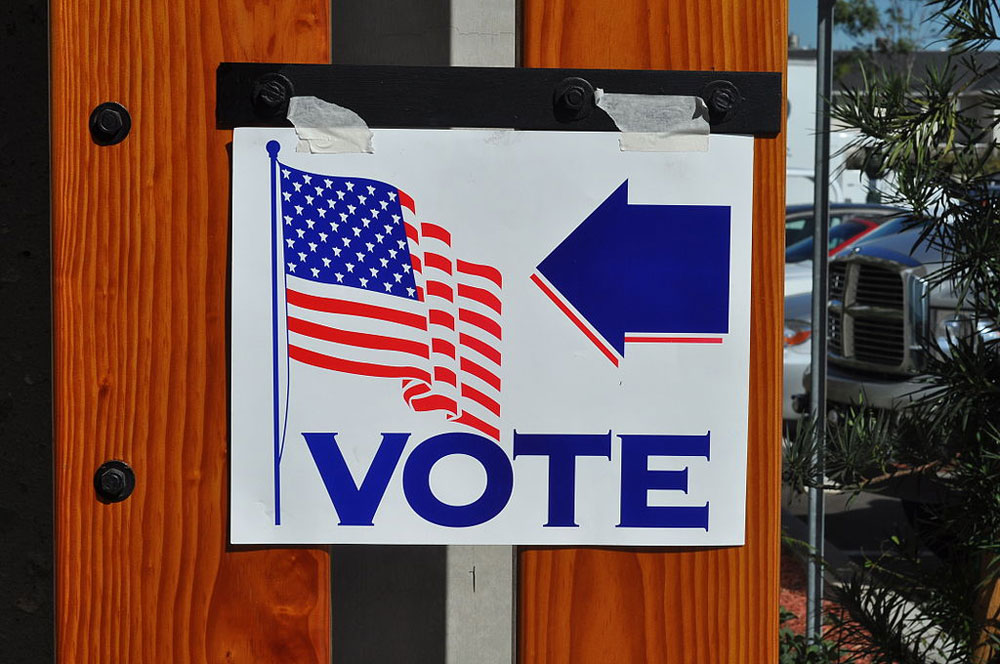
June 28, 2019; Tampa Bay Times and WLRN
In Florida, Governor Ron DeSantis signed into law Friday evening Senate Bill 7066, undercutting much of the promise of what reporter Lawrence Mower of the Tampa Bay Times calls “last year’s historic Amendment 4.” The constitutional amendment, which restored voting rights to former felons, required 60-percent voter approval, ultimately passing last fall with a 64.5 percent “yes” vote.
Earlier, many Floridians celebrated the amendment’s passage, which restored voting rights to an estimated 1.4 million Floridians who had completed their prison sentences. Before passage, it was estimated that “more than one in five black Floridians were ineligible to vote” because they had served time for felony convictions. Notably, the Florida law that had prevented former felons from voting was passed 150 years before during the days of Reconstruction to keep freed slaves off the rolls. As Mower observes, “It worked.”
The language of Amendment 4 was clear: “Except as provided in subsection (b) of this section, any disqualification from voting arising from a felony conviction shall terminate and voting rights shall be restored upon completion of all terms of sentence including parole or probation.”
Subsection (b) exempted felons convicted of murder or sexual assault from its provisions. But otherwise, the idea was simple: if you’ve served your time, your rights are restored.
But what the public giveth, the legislature taketh away. The bill, now law, requires felons to not only complete “all terms of sentence including parole or probation,” but to also pay restitution assessed by the Courts for their crimes. The Republican legislature contends that “all terms of sentence” included fines, fees, and restitution to victims. “Those obligations are expected to disenfranchise hundreds of thousands of felons who can’t immediately afford to pay off their court fees, fines, and restitution to victims,” writes Mower.
The Florida bill enables felons to petition to have their fines, fees and restitution waived. Mower writes, “If victims approve it, felons can petition a judge to either waive their restitution or have it converted into community service hours.” But he adds that “how felons would petition a judge was never laid out in the bill, and it’s unclear whether felons would have to hire a lawyer, for example, to petition a judge.”
Sign up for our free newsletters
Subscribe to NPQ's newsletters to have our top stories delivered directly to your inbox.
By signing up, you agree to our privacy policy and terms of use, and to receive messages from NPQ and our partners.
The law immediately triggered a federal lawsuit filed in Gainesville in the Northern District of Florida. Danny Rivero of Miami-based public radio station WLRN reports, “The suit was jointly filed by a broad conglomerate of prominent civil rights groups in the US District Court for the Northern District of Florida in Gainesville. The plaintiffs include the Florida State Conference of the NAACP, the Orange County Branch of the NAACP, the League of Women Voters of Florida and ten individuals who are directly affected by the legislation. Representing them are the American Civil Liberties Union [ACLU] of Florida, the national branch of the ACLU, the NAACP Legal Defense and Education Fund, the Brennan Center for Justice.”
The complaint alleges that as many as 80 percent of the 1.4 million felons would be denied voting rights if the fees are allowed to remain. It adds:
SB7066 conditions Plaintiffs’ right to vote on their wealth and penalizes returning citizens who are unable to pay, in violation of the First, Fourteenth, Fifteenth, and Twenty-Fourth Amendments.… If not enjoined, the law will have a massive disenfranchising effect, and result in sustained, and likely permanent, disenfranchisement for individuals without means. It creates two classes of returning citizens: those who are wealthy enough to vote and those who cannot afford to.
Back in January, when the idea of requiring former felons to pay fines before their voting rights were restored was first floated, Rivero observed that, “over $1 billion in felony fines were issued between 2013 and 2018 alone….Over that five-year period, an average of only 19 percent of that money was paid back.” Between 2014 and 2018, Rivero added, “an average 83 percent of the money levied is levied to have ‘minimal collections expectations,” meaning that the courts rarely expect repayment. One reason why, Rivero notes, is that, “Upon conviction for drug trafficking, defendants face a mandatory fine of $25,000 to $500,000 per count,” a sum few former felons can afford.
“It is not constitutional, it is not legal, and it is not right to deny people the right to vote because you can’t pay,” said Micah Kubic, executive director of the ACLU of Florida. “What this bill does is reestablish a poll tax.”
Harold Simon, who directed the ACLU in Florida until retiring earlier this year, also helped write Amendment 4. Rivero explains that Simons likens the new law to saying you can’t graduate until you’ve paid your student loans. “Nobody in their right mind would say, ‘Oh, I didn’t graduate yet because I’m still paying off my student loan,’” Simon tells Rivero.—Steve Dubb













